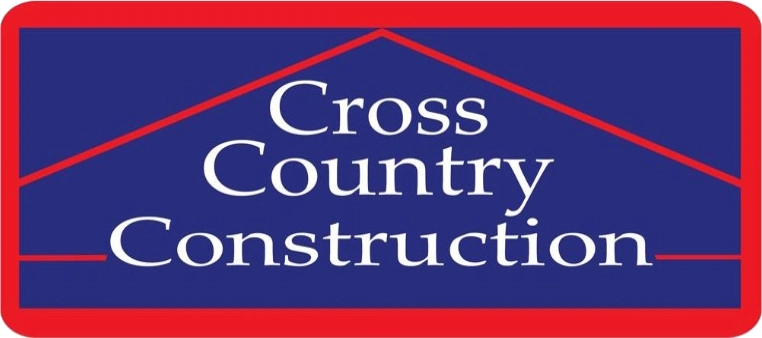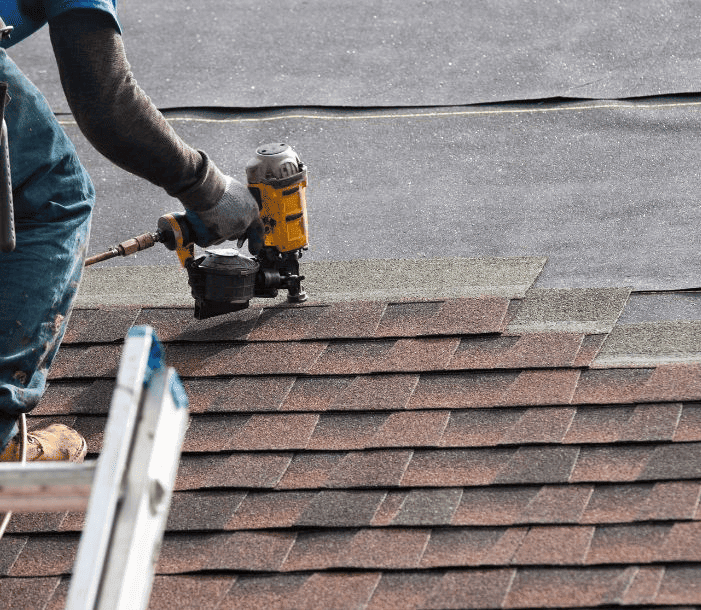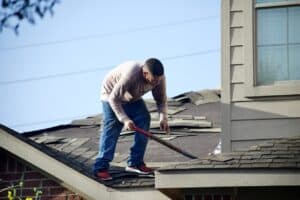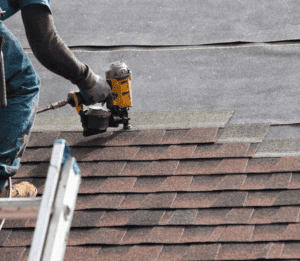Have you ever wondered what goes into the roofing estimate for your home?
A roofing estimate is a document that outlines the materials, labor, equipment, and other expenses involved in the roofing project.
But not all roofing quotes are the same, and you must ensure what to look for to make a smart choice.
Ensuring you get a good estimate on your roof replacement or repair project can sometimes be overwhelming. Fortunately, a few key steps can help guide you through the process. Let’s dive in!
Key Details of a Roofing Estimate
Reviewing the details in each roofing estimate before hiring a contractor is crucial. This ensures transparency and helps avoid surprises later on.
According to Forbes, the average cost of a new roof installation is $11,500, but prices can vary based on factors such as roof size, type of material, and location.
Be wary of companies that appear uninvited after a storm, as they might be scammers looking to take advantage of vulnerable homeowners. Trusted local roofing businesses with established reputations are a safer choice.
Moreover, ensure each estimate includes essential details such as the type of material, labor costs, permit fees, and timeline for completion. Asking questions and clarifying any unclear points can also prevent misunderstandings and ensure a smooth project experience.
Here are some things that every roofing estimate should include.

1. Contractor Company Info
When you get a roofing estimate, always check if it has the roofing company’s contact information, including their name, address, phone number, and license. You might need this info later if you have questions about the estimate.
Never settle for a contractor without credentials. Good estimates display insurance and licenses. It means the contractor respects the law and your property.
By choosing a licensed and insured roofing contractor, you’ll be safe in the knowledge that workers are covered for injuries, and you won’t be held accountable for any on-the-job accidents.
2. Project Timeline and Completion Date
When a roofing contractor starts working on your roof, it’s important to ensure it fits your schedule. A professional should be able to finish on time, except for unexpected circumstances.
Estimates should include the following:
- Start date
- Estimated completion date
- Quote date
However, the price may have changed if a quote is over five months old.
3. Safety And Labor Protection
Labor is a crucial factor in determining the overall cost of a roofing project. The project cost will increase proportionately with the length of project time it takes to complete.
Contractors consider various factors when assessing the labor required, including the roof’s pitch. If the roof has extreme angles, it may require different strategies, which can increase the labor required.
The age of the roof and the number of layers that need to be removed also influence the amount of labor required. Roofs with multiple layers will take longer to strip, which increases labor costs.
For example, a contractor may charge $2 to $4 per square foot for a simple roof replacement. However, if the roof has several layers, it may cost anywhere from $4 to $7 per square foot due to the labor required to remove the layers.
4. Roofing Materials & Equipment Used
Determining the cost of your roof replacement depends on the materials needed. This includes asphalt shingles, flashing, and gutter pieces, among others. Watch out for red flags like incomplete estimates. A reputable contractor will give a detailed list of materials and brands used for the job.
Their list should include the thickness of the underlayment, flashing locations, and nail hole sealant. They will also state the types and sizes of fasteners and nails.
Special touches like decorative flashing and period-accurate soffits will add to the total cost. Slate roofs are more expensive than standard shingles. Flat rooftops may require single-ply PVC systems.
Not all roofing companies use the same materials, and each has different specialties. Trustworthy contractors provide precise specifications for materials and costs needed to complete the job.
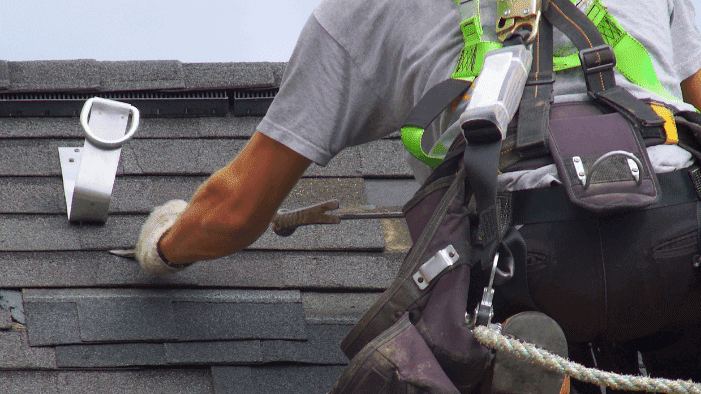
5. Cost and Payment Terms
When you get a new roof estimate, it should have the total cost of the whole project. The cost should include tearing off the old roof, installing new shingles, and more.
For example, this list of things:
- Underlayment
- Flashing
- Cleanup and dump fees
- Chimney work
- Installing ridge or box vents, flapper vents
- Getting the necessary permits
- Labor
You also should compare contractor costs to find out what’s reasonable. Don’t just go with the cheapest one! You must consider all the details, like the company’s reputation, reviews, and how long it has been in business.
6. Additional Repairs
As a homeowner, you may not expect it, but your roof could have hidden issues beyond shingles. Your contractor will let you know if anything extra needs to be done, like fixing the roof or gutters. It’s more cost-effective to use the same team if there are additional needs so everything gets fixed immediately.
We recommend that before making a decision, make sure to go over all costs in detail.
7. Note How Fast You Get The Estimate
When you’re reviewing an estimate, remember to consider how quickly a contractor responded. If they took too long to get back to you, it’s a bad sign.
That’s often connected to their work ethic and professionalism. Make sure to scrutinize what’s included in the quote, too. If you’re unhappy with it, consider looking for another contractor.
8. Ask Roofing Related questions
Don’t hesitate to clarify the details of your estimate. It helps manage expectations and prevents misunderstandings. You can easily ask simple questions like:
- What materials are being used?
- Is there a plan for sudden changes that could increase costs?
- What happens if the contractor doesn’t pay everyone involved?
Asking such questions will give you clarity and help protect your home.
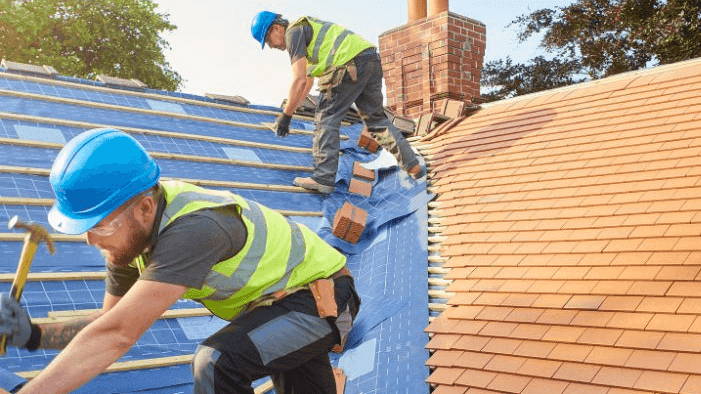
9. Check License & Insurance
You deserve to have a safe roof put on your house by trustworthy contractors who take pride in their work. So, it’s essential to know how to spot them.
Here’re some red flags to steer clear of:
- Uninsured roofers may quote lower prices, but it’s a high-risk gamble.
- You’ll lack protection from damage or injury without insurance, and DIY warranties won’t cut it.
- Unlicensed installations may void your insurance coverage.
- Florida and surrounding areas require contractors to carry a license, certification, and liability insurance for their workers’ safety and property damage.
Choose a licensed roofer who’s glad to provide you with this information. Insist on proper credentials, and hold them legally accountable for any inadequacies. It pays to be vigilant when getting a new roof or fixing an old one.
10. Property Protection
Are you worried about protecting your property? Ask your contractor. They’ll give you insight into what measures they can take to protect your property during construction. This includes covering the attic and securing appliances. They may even cover your swimming pool with a tarp.
Tips: keep in mind that not all contractors offer this level of protection, so make sure to inquire about it when you obtain an estimate for the work.
The cost of these precautions will also be included in the estimate, so you’ll know exactly what to expect.
11. Warranties
When you get a roofing estimate, make sure to ask about your roofing companies:
- Warranties: how long should the work be expected to last?
- Guarantees: What guarantees does the company provide?
- Issue resolution: How will problems be resolved if they occur?
As mentioned above, don’t forget to ask specific questions about how your property will be protected from damage during the work; for example, they will protect the structure below until the new roof is in place.
12. Compare Multiple Roofing Estimates
Getting multiple estimates from different roofing contractors is essential in finding a fair and competitive price for your roofing project.
Here are some considerations for fair comparison:
- Check that each estimate covers the same scope of work for an apples-to-apples comparison.
- Location matters! If your roofer’s office is a little further away, transportation costs might hike up your quote.
- Steep roof? There will be extra costs due to risks for the roofers and complex roofing work.
- Roofing material choice matters a lot! Different shingles and components vary in price due to make-up, performance, and appearance.
- Opting for some extras on your existing repairs and maintenance, like additional vents, can impact your cost too.
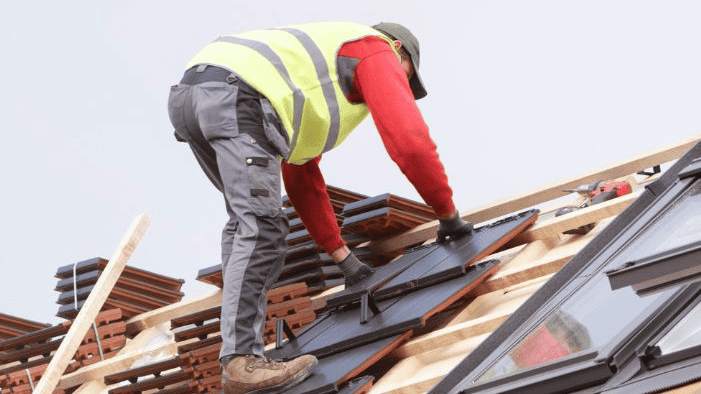
How Long Does a Roof Estimate Last?
We know that estimates only last for a while. Some estimates could last a year but most last around 90 to 180 days.
If your estimate is still valid, you can hire your contractor at the price specified on the estimate within that time. If you decide to go forward after that date, you’ll need a new estimate with updated prices.
Get the Best FREE Roof Repair Estimate from Cross Country Construction
At Cross Country Construction, as top roofing contractors Roscoe IL, we offer top-notch roofing services to homeowners in Roscoe, IL. We’ve helped hundreds of homeowners maintain their homes and can help you too. If you want to know more about our roofing repairs and installation solutions, give us a call at (815) 315-0637 or fill out the quick form on our contact page.
Contact us at Cross Country Construction roofing company to learn more.
